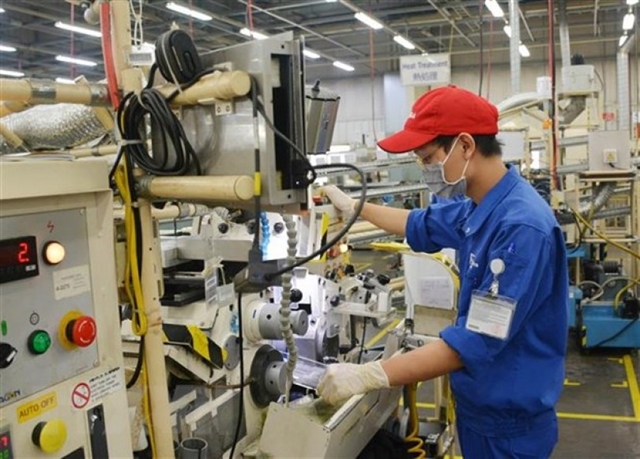 Economy
Economy


|
| A worker operates a machine in a factory in the Linh Trung 1 Industrial Park in HCM City. The labour market is facing a risk of crisis with unemployment and underemployment rates rising sharply. — VNA/VNS Photo |
HÀ NỘI — Although it is under control, the fourth wave of the COVID-19 pandemic has hit all aspects of social life, seriously affecting businesses and people.
The labour market is facing a risk of crisis with unemployment and underemployment rates rising sharply and workers incomes falling significantly.
To revive the labour market, create more jobs, and ensure the continuity of production and business activities, Việt Nam is focusing on solutions aimed at flexibly and safely adapting to the new normal.
According to a report of the General Statistics Office, nearly 160,000 enterprises entered or re-entered the market in 2021, a decrease compared to the previous year, while 119,800 enterprises withdrew from the market, an increase of nearly 18 per cent year-on-year.
Along with unemployment, the pandemic has seen labour markets from urban to rural areas, and from major economic centres to provinces, leading to a risk of temporary labour shortages and the pressure to solve onsite jobs in the big cities.
Labour shortages in labour-intensive industries such as garment and textiles, footwear, e-commerce and retail have left many businesses unable to increase their capacity when production is recovered. Many are only operating at 75 per cent compared to before the pandemic.
The Ministry of Labour, Invalids and Social Affairs has issued a programme to support the recovery and development of the labour market.
The programme will focus on training employees, improving the quality of labour supply, stepping up digital transformation and in-person teaching in vocational education, and investing in high-quality schools.
Minister Đào Ngọc Dung affirmed the need to build labour market support policies in line with respecting the market and addressing inadequacies, especially factors that cause an imbalance between labour supply and demand. — VNS




